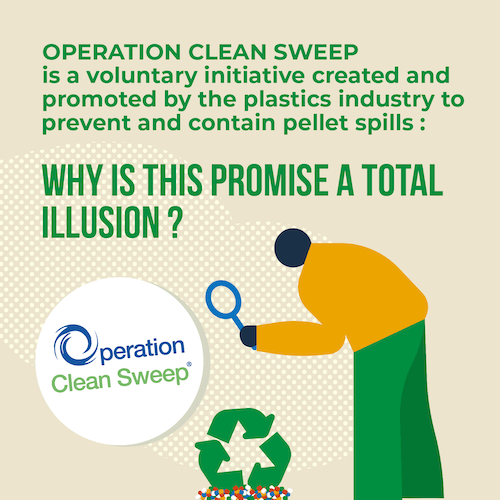Break the plastic wave
To stop plastic pollution of the Ocean, change is needed now. Citizens, businesses, public institutions and governments; every level of society must all work together to transform the way we produce and consume to fight plastic pollution and preserve Ocean health.
Plástico, a praga do século XXI
Este é o número de milhões de toneladas de plástico que acaba no oceano todos os anos.
Com a campanha “Quebrar a Onda de Plástico”, a Surfrider Europe quer influênciar todos na sociedade para se envolverem ativamente na luta contra a poluição por plásticos. Os nossos políticos têm uma grande responsabilidade em criar leis e medidas concretas para proteger o ambiente e o oceano. Algumas empresas de plástico estão a tentar aproveitar-se da crise de saúde para evitar regulamentações que as obriguem a mudar. Precisamos continuar a luta e não perder o progresso que já fizemos. As empresas devem ajudar, criando produtos reutilizáveis e sustentáveis. Como cidadãos, as nossas escolhas diárias fazem diferença, desde como consumimos até aos nossos hábitos.
12
Mudar a sociedade
Cidadãos

Conhece o que está nos teus produtos: Evita comprar produtos que contenham ingredientes com microplásticos intencionalmente adicionados.
Reutiliza, não uses uma única vez: Evita comprar plásticos de utilização única e escolhe alternativas zero desperdício.
Compra com consciência: Apoia as marcas e empresas sustentáveis que trabalham ativamente para reduzir o seu impacto.
A tua voz importa: Fala com os teus representantes locais e exige medidas para reduzir o desperdício de plástico na tua localização.
Empresas

Inovação de Produtos: Deve-se melhorar o design dos produtos para que sejam duráveis, recarregáveis, reutilizáveis e reparáveis.
Microplásticos, um grande problema : É necessário parar de adicionar ingredientes de microplásticos a produtos cosméticos e de cuidados de saúde.
Menos é mais: Evitar embalar em excesso e adotar uma filosofia minimalista nos negócios diários.
Oferecer oportunidades, e não plásticos: Banir ofertas de produtos de plástico de utilização única e fornecer opções de alimentos a granel e zero desperdício aos consumidores.
Governo

Ecpnomia Circular: Utilizar a reutilização, o reabastecimento e a reparação para criar um sistema de circuito fechado, minimizando o uso de recursos e a criação de resíduos.
Eliminar Microplásticos: Proibir a adição de ingredientes de microplásticos em todos os produtos fabricados e vendidos na Europa.
Liderar a Iniciativa: Tomar iniciativa de adotar, implementar e aplicar rigorosamente as leis europeias sobre plásticos em território nacional.
Corte na fonte, sem exceções: Independentemente da espessura ou composição, manter uma posição rigorosa contra todos os plásticos de utilização única, face ao lobby da indústria.
Stop single use plastics and packagings !
Surfrider’s Environmental Report is irrevocable, 65% of the objects collected during the Ocean Initiatives are single-use plastics or packagings.
Plastic bottles and bags, cigarette butts, cotton buds, and food packaging are all products that last from a few seconds to a few minutes. However, if they end up in nature, they will never really disappear but will progressively degrade into plastic microparticles that pollute the ocean for a long time. Often mistaken for food, they are ingested by species that die of intestinal obstruction or starvation, and enter the food chain. In addition, plastic releases chemical elements as it decomposes, contaminating ecosystems and posing a risk to human health.
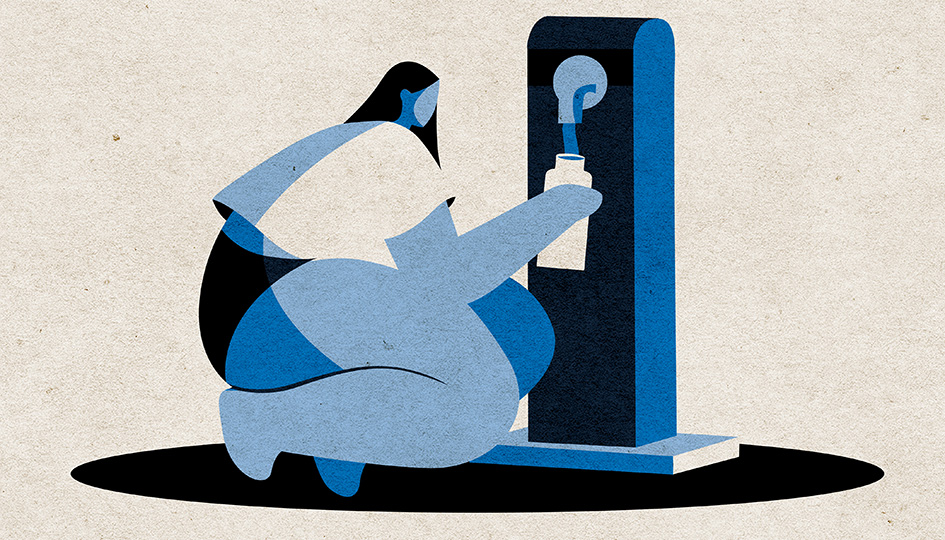
Manufacturers must assume their responsibility and propose sustainable alternatives.
Ecology should not be a marketing argument to reassure the consumer and sell more product, it must be an integral part of the values of companies to truly limit their impact on the environment. Manufacturers can act at many levels to limit plastic pollution: rethinking the design, production and distribution of their products to reduce the use of plastic throughout the value chain. It also means replacing single-use plastic products and packaging with reusable alternatives and developing systems that enable reuse. To end over-packaging and single-use plastic products.
Some key sectors, such as food service and take-out, which are between the industry (producers of plastics/packaging) and citizens (consumers), have a role to play in moving away from single-use and reducing plastic pollution by implementing a system of reuse of food and drink containers. Surfrider is committed to supporting restaurant owners in this transition with its Ocean Friendly Restaurant program, but manufacturers must offer adequate products and the law must push for this transition with objectives and concrete measures in favor of reuse. Surfrider is making recommendations to the European Commission in this regard.
International policies and institutions are also involved
Politicians must put in place the necessary legislative framework for the ecological transition and the reduction of plastic pollution, at all levels (international, European, national) because we are all impacted by this pollution. Public decision-makers must adopt binding measures that are commensurate with the ecological emergency, in order to encourage a change of economic model, production and distribution model, and to force companies to change their production and distribution model towards a circular economy that is based above all on the saving of raw materials.
In the case of single-use plastic products and packaging, this implies the implementation of certain bans on polluting products, but also the adoption of means allowing the development of reusable alternatives.
Public authorities must also ensure the implementation of this ecological transition by integrating waste reduction in all their public policies and by setting an example by eliminating unnecessary or single-use plastic in public administrations and events.
As a citizen
We have the opportunity to influence politics and industry through the power of our votes, and our voices, and by where and how we choose to invest our money.
For example, we can choose to consume less by investing in long lasting, locally sourced products. We can buy in bulk to limit packaging, read label information to avoid plastic ingredients, and refuse using single-use items.
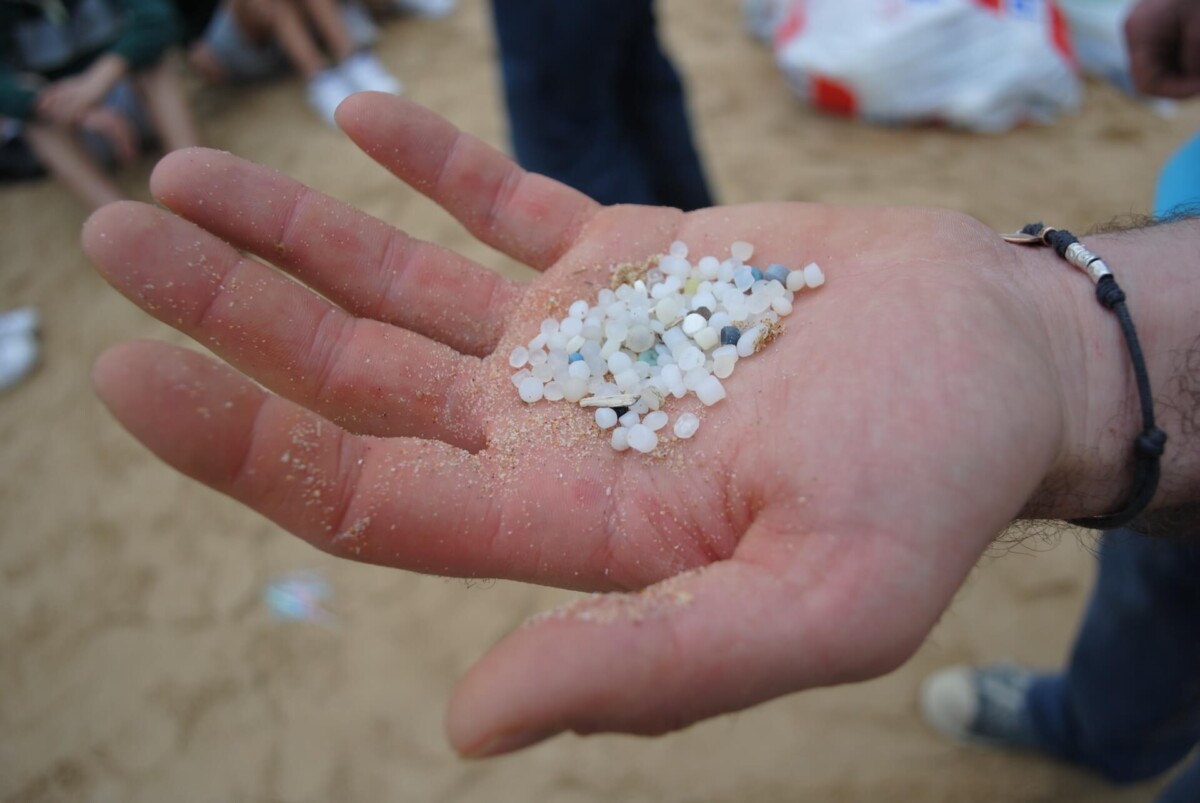
Microplastics: the invisible pollution of the Ocean
Measuring less than five millimetres, microplastics are found in the marine environment, but also in the air and in marine fauna. There are two types of microplastics:
– Microplastics intentionally added to the product. For example, in cosmetics, microbeads added to exfoliating gels or dentifrice.
– Microplastics created by the degradation of products such as larger plastic pieces, textile fibres or car tires, to name a few.
European Union mobilises against microplastics
In recent years, studies conducted by the scientific community have produced highly alarming data on the omipresence of microplastics in the Ocean, rivers, and within most marine species. The United Nations declared in 2017 that the Ocean contains between 15 and 51 billion particles, 500 times more than the number of stars in the galaxy.
When the Plastics Strategy was publishedin 2018, the European Union committed to a ban on intentionally added microplastic ingredients in certain types of products (cosmetics and personal care products, detergents, cleaning products, paints, products used in the oil and gas industry, and agricultural fertilisers).
Industrialists must adhere to the requirements of this legislation to stop the intentional addition of microplastics to their products.
As citizens, how can we avoid them?
“Clean” packaging and green slogans do not guarantee a product without microplastics. These terms are not regulated and fall under the term “Greenwashing”, a technique used by manufacturers to make consumers think that their product is more eco-friendly than it actually is by using color and imagery.
Here are some clues to spot them in your future purchases: First, avoid products with formulas with ingredients ending in -one or -oxane, large letters such as PPG and PEG, poly- and -cellulose. Secondly, you can rely on products with the Slow Cosmetics label, named after the same association that is campaigning for a total ban on plastics in cosmetics. Also, applications such as Beat the microbead help you to see through the marketing and get to the core of what you are buying.
Beware of false good solutions !
Idea #1 : recycling
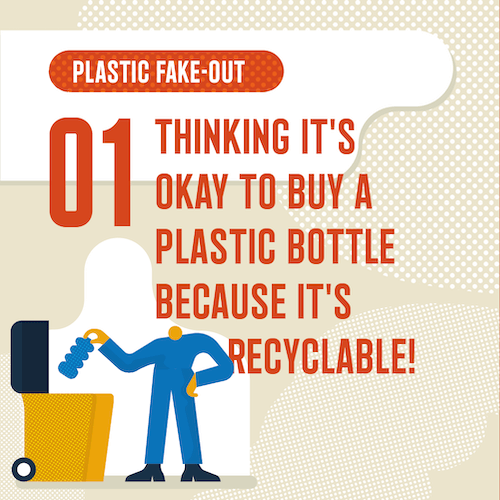
Idea #2 : bioplastic
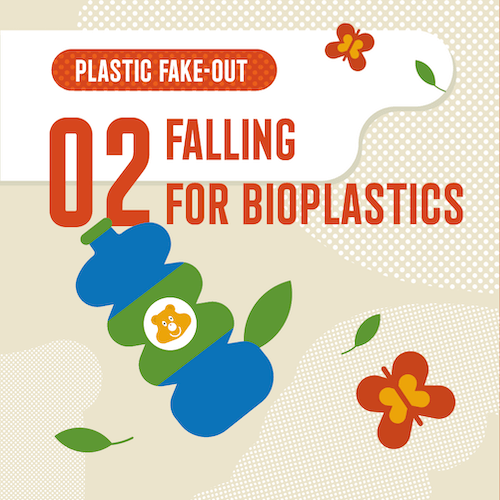
Idea #3 : cleaning the ocean
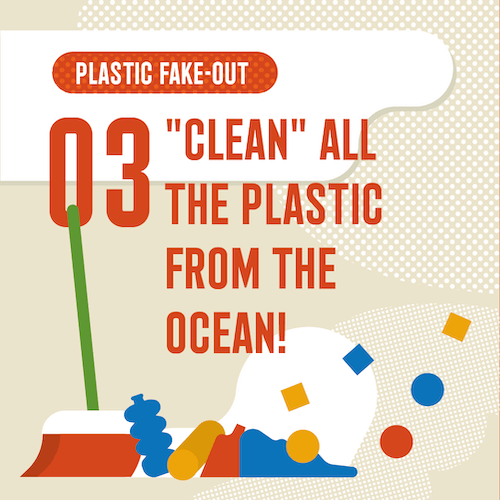
Idea #4 : Clean Sweep
